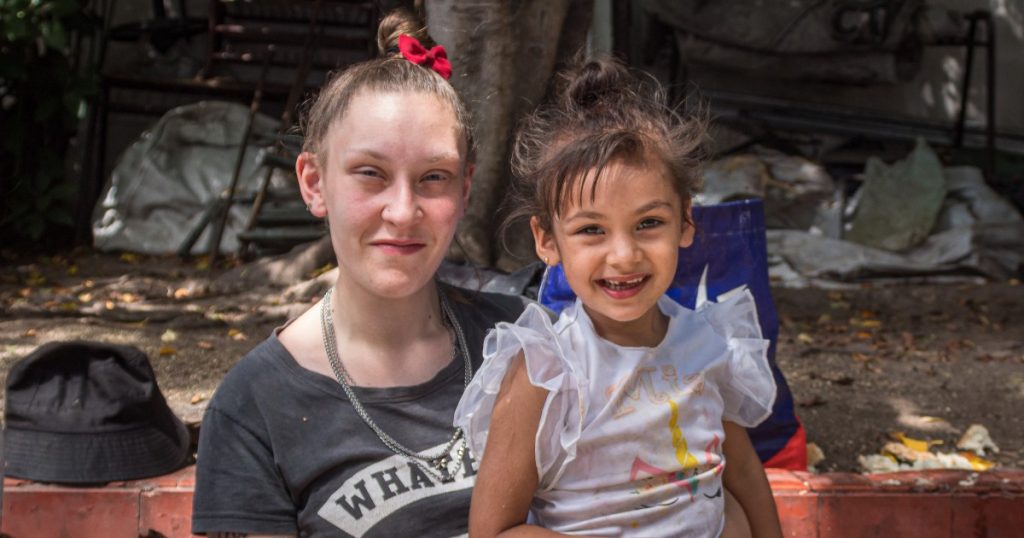The economic policies of Javier Milei’s presidency in Argentina have sparked a contentious battle with social organizations struggling to alleviate the escalating poverty crisis. At the heart of this conflict lies the government’s drastic reduction in funding for social programs, leaving vulnerable populations increasingly reliant on strained resources. The Union of Informal Economy Workers (UTEP), representing a significant portion of Argentina’s workforce – nearly half of whom live in poverty – has emerged as a key opponent of Milei’s policies. UTEP operates soup kitchens that have become vital lifelines for countless Argentinians, but these kitchens now face dire challenges due to the government’s withdrawal of support.
UTEP’s soup kitchens previously relied on regular food supplies from the federal government, a practice that abruptly ceased after Milei took office. This sudden cut-off forced the organization to scramble for alternative resources, turning to local governments and individual donations to meet the surging demand. The struggle to secure sufficient supplies has become increasingly desperate, with organizers describing the situation as worse than the pandemic. The rising poverty rates have amplified the pressure on these already stretched resources, leading to a stark increase in the number of meals the soup kitchens are forced to provide. Despite their best efforts, the kitchens are struggling to keep pace with the growing need, leaving many hungry and highlighting the deepening crisis.
The conflict between UTEP and the Milei administration escalated further when the organization filed a lawsuit demanding the delivery of approximately 6,000 tonnes of food held in government warehouses. A federal judge ruled in UTEP’s favor, but the government appealed the decision, delaying the delivery of the desperately needed food. This legal battle underscores the growing tension between social organizations and a government accused of neglecting its responsibility to address the escalating poverty crisis. Meanwhile, Milei and his allies have levelled unsubstantiated accusations of corruption against the soup kitchens, further straining the relationship and fueling mistrust. This tactic, critics argue, serves to deflect attention from the government’s own failures and demonize those working to alleviate the suffering of the most vulnerable.
The Milei administration’s combative stance towards social outreach programs extends beyond the conflict with UTEP. Social advocates accuse the government of deliberately targeting these programs, particularly those led by women, even as the need for their services intensifies due to rising poverty. Fernanda Miño, a community leader in a marginalized neighborhood near Buenos Aires, experienced this firsthand. Before Milei’s presidency, Miño oversaw a federally funded infrastructure improvement program that provided essential services like housing, roads, and utilities to underdeveloped areas. However, Milei’s government abruptly cut funding for the program after accusing Miño of corruption, an accusation that a subsequent government investigation found to be baseless.
Despite the lack of evidence, the harassment against Miño continued. Armed federal police raided her home, ostensibly searching for a stolen vehicle, an act Miño believes was a blatant attempt to intimidate her and silence her criticism of the government. This incident, combined with the broader pattern of government hostility towards social programs, has led many to believe that the Milei administration is deliberately undermining efforts to address poverty and marginalization. Miño’s experience exemplifies the challenges faced by community leaders, particularly women, who are increasingly targeted for their work in advocating for the rights and needs of vulnerable populations.
The struggle of UTEP’s soup kitchens and the harassment faced by community leaders like Miño highlight the growing crisis in Argentina. The Milei government’s policies, marked by drastic cuts to social programs and unsubstantiated accusations of corruption, have exacerbated the plight of the poor and marginalized. As poverty rates escalate and the demand for social services increases, the government’s combative approach appears to be deepening the crisis, leaving many questioning its commitment to addressing the needs of its most vulnerable citizens. The conflict between the government and social organizations underscores a fundamental disagreement about the role of the state in providing social welfare and protecting the rights of its citizens, raising concerns about the future of social support in Argentina.

